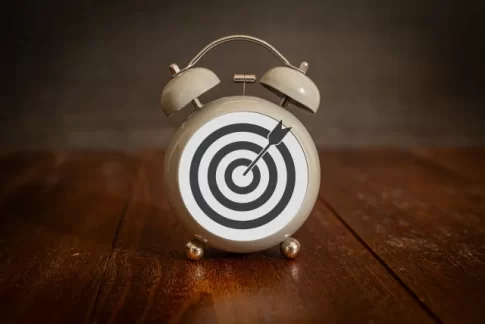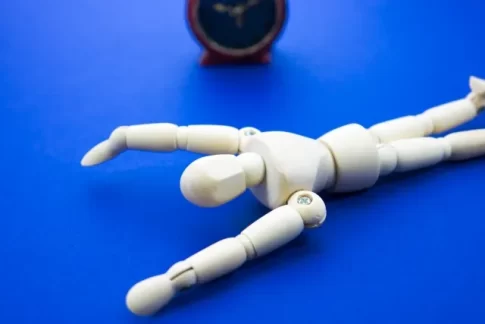この記事の概要
Erectile Dysfunction (ED) is the inability to achieve or maintain an adequate erection when sexually aroused or stimulated. ED is a common problem in middle-aged and older men, but it can occur at any age.
Main Symptoms
- Erection does not occur after sexual stimulation.
- Erection occurs, but not hard enough.
- Even when an erection is obtained, it is difficult to maintain, and sexual activity cannot be completed.
- Despite sexual arousal or desire, erection does not occur.
Cause
The causes of ED can be divided into physical and psychological, but often both factors are involved.
1. Physical causes
Physical factors are often the primary cause of ED and are associated with vascular, neurological, hormonal, and muscular problems.
- Vascular problems: The most common cause of ED is blood flow problems. The penis must have an adequate blood supply when sexually stimulated, but if blood flow is impeded by circulatory problems such as arteriosclerosis or hypertension, an erection becomes difficult to achieve.
- Diabetes: Diabetes increases the risk of ED because of damage to blood vessels and nerves. Diabetic neuropathy damages nerve transmission to the penis, preventing the nerve signals necessary for erection from functioning properly.
- Hormonal Abnormalities: Hormonal problems such as testosterone deficiency can also cause ED. Decreased testosterone decreases sexual desire and the ability to maintain an erection.
- Nerve damage: Damage to the nervous system, such as spinal cord injury or nerve damage following prostate surgery, can also cause ED. When nerves do not function properly, sexual stimulation is not transmitted from the brain to the penis, making it difficult to achieve an erection.
- Side effects of medications: Some medications (e.g., hypertension medications, antidepressants, antipsychotics) can cause ED as a side effect.
2. Psychological reasons
Psychological factors can also influence ED. Especially in young men, psychological factors can be a major cause of ED.
- Stress and anxiety: Increased stress and anxiety at work, at home, in relationships, etc. can affect sexual arousal and make erections difficult.
- Depression: Depression can decrease sexual desire and affect erectile function. Medications used to treat depression may also contribute to ED.
- Performance Anxiety: Excessive anxiety or pressure to perform sexually may make erection difficult. If this condition persists, it can become a vicious cycle and ED can become chronic.
3. influence of lifestyle
- Smoking and drinking: Smoking narrows blood vessels and worsens blood flow, increasing the risk of ED. Excessive alcohol consumption can likewise adversely affect the nervous system and cause erectile dysfunction.
- Lack of exercise: Lack of exercise and obesity also negatively affect the cardiovascular system and hormonal balance, increasing the risk of ED.

Treatment
Treatment of ED can be done in a variety of ways, depending on the cause and severity of symptoms. Treatment begins with identifying the physical cause, while also taking psychological factors into consideration.
1. Drug therapy
- PDE5 inhibitors (Viagra, Cialis, Levitra, etc.) are the most common ED medications. These medications increase blood flow to the penis and promote erections. They are effective during sexual stimulation and help sustain an erection.
- Testosterone replacement therapy is used when hormone deficiency is the cause and is expected to restore libido and erectile strength.
2. Improvement of lifestyle
- Increased exercise and improved diet can help improve vascular health and reduce symptoms of ED.
- Smoking cessation and limitation of alcohol consumption also help maintain normal blood vessels and restore erectile function.
3. Psychotherapy
- Counseling and psychotherapy are effective for EDs related to psychological factors such as stress, performance anxiety, and depression. It reduces psychological pressure and relieves anxiety about sexual performance.
4. Surgical treatment
- As a last resort, surgical treatments such as penile prosthesis implantation or vascular surgery may be used. These are considered when other treatments have not been effective.
Prevention
Maintaining a healthy lifestyle is important in the prevention of ED. Regular exercise, a balanced diet, non-smoking, and moderate alcohol consumption help maintain erectile function. Stress management and maintaining mental health are also effective in preventing ED.
summary
Erectile dysfunction (ED) is the inability to achieve or maintain an adequate erection after sexual stimulation. The main causes include vascular problems, nerve damage, hormonal abnormalities, psychological stress, and many others. Treatment options include drug therapy, lifestyle modification, psychotherapy, and surgical treatment, and it is important to choose the appropriate treatment according to the cause.










